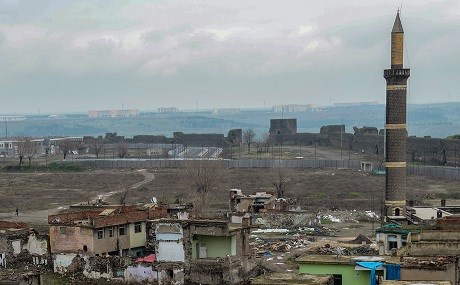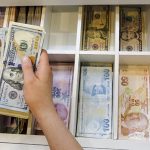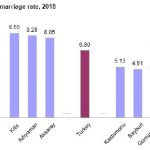The violence, which resumed after the collapse of a fragile ceasefire in 2015, hit the historic walled town of Sur in the Kurdish-majority province of Diyarbakir especially hard.
Thousands had to abandon the region, with many houses demolished during intense clashes between the Turkish military and outlawed Kurdistan Workers’ Party (PKK) militants.
Mehmet Kacan, who is running for village chief in the March 31 elections, finds himself chasing some 4,000 voters of his Fatihpasa neighbourhood who simply are not at home.
“The people are now scattered all around the province,” Kacan told AFP.
“It is hard to afford a living there, people cannot even pay their electricity bills. They want to return to their old neighbourhoods,” he said, vowing: “I will work to bring those people back.”
Around 6,000 families were forced to leave six Sur neighbourhoods, and no one has returned, according to a February report by the Diyarbakir-based Dicle Social Studies Centre.
While construction of new homes has been continuing since 2017, police barriers and concrete blocks prevent any access to the town, a UNESCO World Heritage site with ancient fortified walls, historic mosques, churches and synagogues.
Although many people moved away, they remain registered as residents to avoid losing state benefits such as rent allowances and compensation for damaged homes.
‘No neighbourhood left’
Turkey stepped up the fight against Kurdish militants following a 2016 failed coup against President Recep Tayyip Erdogan’s government, declaring a state of emergency under which tens of thousands of people were arrested or sacked from their jobs.
The PKK, originally set up to win Kurdish autonomy, took up arms in 1984 with the aim of creating an independent Kurdish state. The subsequent insurgency has claimed more than 40,000 lives.
Parts of Sur have endured 24-hour curfews lasting weeks at a time, preventing Kurdish civilians from fleeing combat zones.
Activists have accused Turkish security forces of causing huge destruction to urban centers and killing Kurdish civilians.
Although the district – a tourist attraction as one of the first places where humanity began settled life – has been rebuilt, it has changed significantly.
Kacan, an electrician, is going street by street in search of an audience for his campaign platform.
At a local coffeehouse, he came across two former residents from Fatihpasa who lamented their loss.
“There is no neighbourhood left physically to talk about,” said Selim Turgul. “When we left the neighbourhood we did not change our addresses… because we wanted to get back to our house there.”
He said many former residents “are in a dire situation”, adding: “We are hoping to return. We want our own house.”
‘You see the suffering’
Orhan Kacan, a former resident of Fatihpasa neighbourhood, also wants to return home.
“You see the suffering of people. They cannot pay their rents for four months,” he said. “We want to live in peace. We want our neighbourhood to be like it was before, so that we can return.”
Savas is another devastated neighbourhood where the number of voters has dropped to 1,800 from 3,000.
Metin Arslan, another candidate for village chief or muhtar, is also touring the coffeehouses, to little avail.
“Our residents live somewhere else because the neighbourhood is abandoned,” he said.
“It is not appropriate to make promises to an electorate in a neighbourhood that no longer exists.”



